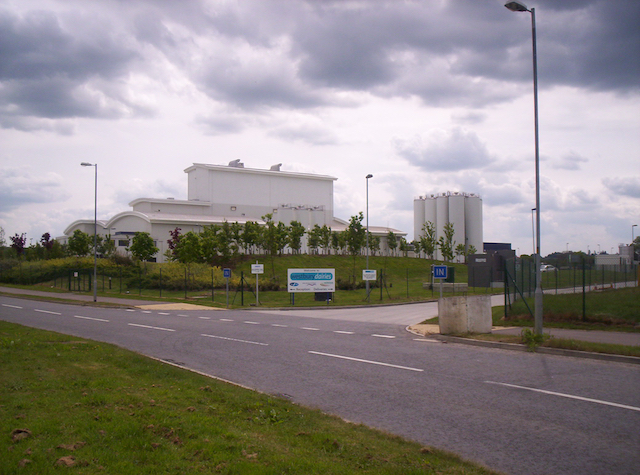Client - Westbury Dairies

BSSEC were commissioned by Westbury Dairies to undertake works including energy savings opportunities audit for implementing an Energy Management System (EMS) – including Monitoring & Targeting and Energy Management Assessment – and CHP feasibility.
Client Requirements
Westbury Dairies is a joint venture company set up by dairy co-operatives Dairy Farmers of Britain, First Milk and Milk Link, to operate the Westbury dairy factory. Based just outside the town of Westbury in Wiltshire, the building covers 3200 square metres (310,000 square feet) and is 35 metres (115 feet) high at its tallest point.
BSSEC were commissioned conduct an initial opportunities assessment as part of their a commitment to reduce energy costs and their environmental impact and to improve the sustainability of their operations which related to the implementation of an energy management system and various technical improvements to the plant. Following on from this, BSSEC undertook a review the existing metering, monitoring and targeting arrangements and to provide recommendations for the use of automated monitoring and targeting systems. In addition BSSEC also reviewed and assessed all previous CHP work carried out and to identify actual base loads along with providing general advice upon biomass fuels, security of electrical supply and process load shedding as a CHP feasibility study.
Methodology
BSSEC conducted an initial energy saving opportunities assessment in order to reduce energy costs and their environmental impact and to improve the sustainability of their operations. This involved:
- A review of energy use with service infrastructure, process plant and site operation
- Identify potential energy savings as priority 1 (no/low cost), priority 2 (medium payback) and priority 3 (long term payback).
- Investigate opportunities to provide heat recovery to the thermal oil powder dryer.
- Investigate opportunities to better utilise the 49°C process hot water.
The identified energy saving opportunities related to the implementation of an EMS and various technical improvements to the plant. The proposed EMS comprised of the following:
- An energy policy
- An energy management action plan and resource allocation schedule
- A programme of further detailed energy studies
- A programme of energy trials
- A training programme
- A programme of energy management audits
- An energy management system in Microsoft packages format separate to the report for practical implementation
In addition, BSSEC were commissioned to review and assess feasibility for CHP installation. The concept of CHP installed at Westbury Dairies had been considered at many times throughout the short history of the plant. BSSEC reviewed and assessed all previous CHP work carried out and to identify actual base loads along with providing general advice upon biomass fuels, security of electrical supply and process load shedding. The objective of was to provide an independent initial investigation and report into the feasibility of CHP at the Westbury Dairies plant.
The specific objectives of this consultation were to:
- Consider all previous CHP consultations to the Westbury Dairies Plant.
- Determine base loads for the Westbury Dairies plant during flush and low season periods thus establishing minimum and maximum load profiles.
- Consider large scale gas turbine CHP machines.
- Consider large scale reciprocating engine CHP machines.
- Consider biomass fuels available as a CHP fuel.
- Consider CHP load shedding.
- Consider the security of site electricity supply
Outcomes
From the initial opportunities assessment, the principal opportunities included employing an energy manager, factoring energy use into the Factory Production Plan, monitoring & targeting, compressed air pressure reduction, operate 49°C process hot water more efficiently and heat recovery. The aggregated savings from the measures identified represented a 16% reduction in energy consumption and a 17% reduction in cost.
The initial energy saving calculations provided from the Initial Opportunities Assessment were reviewed by BSSEC and the initial level of investment reduced to provide an affordable EMS implementation package. As a result, implementing all of the measures with the EMS, the aggregate savings from the measures identified represented a 10% reduction in energy consumption and a 9% reduction in cost.
As a result of the CHP feasibility study, BSSEC recommended that the gas turbine CHP machine was the best machine for Westbury Dairies and highlighted that there were opportunities to fuel the CHP machines from biomass fuels.
“We look to constantly improve the economic, environmental and ethical sustainability of our supply chain – learning from best practice in dairy around the world, and in other industries”
Sustainability Matters






